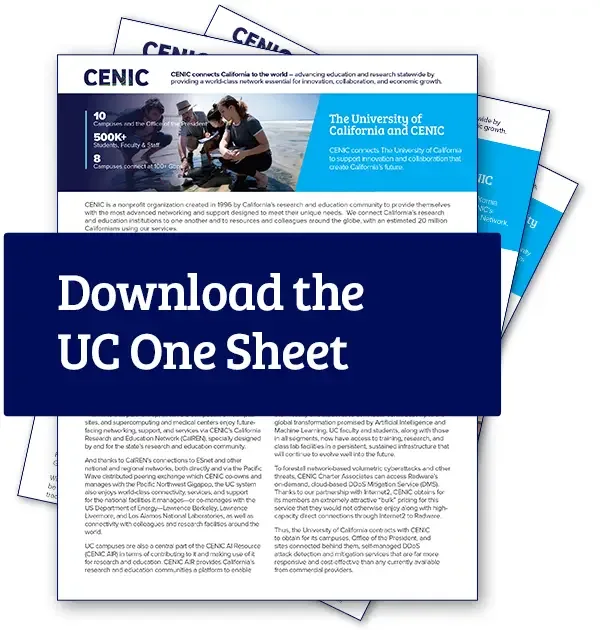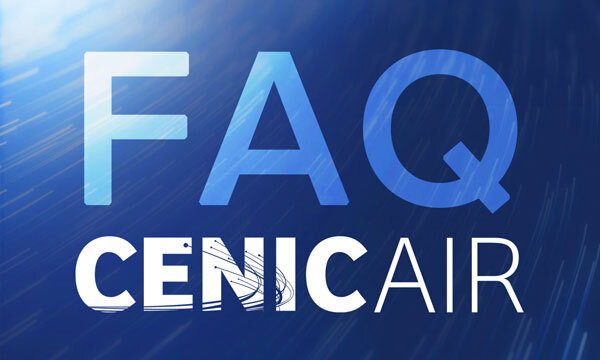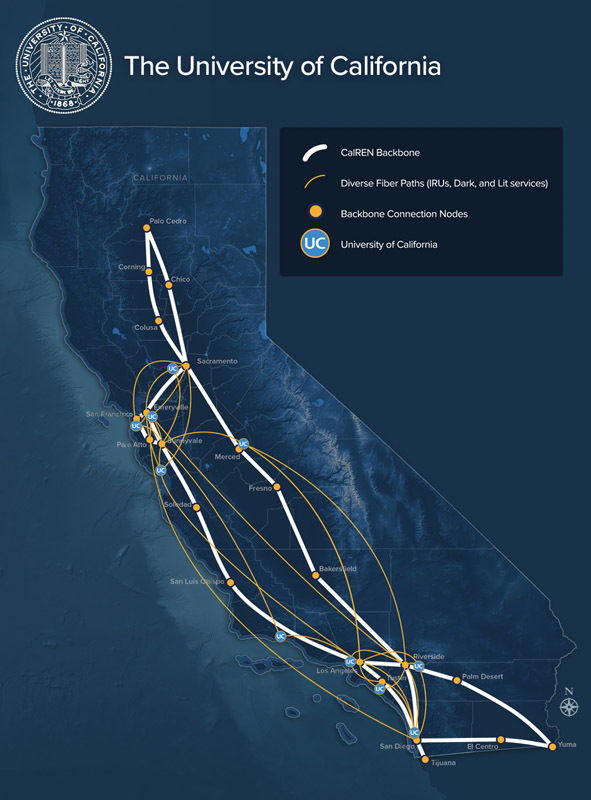- About
- Network
- Community
- Initiatives
- News
- Events
- Blog
- Publications
The University of California and CENIC
CENIC is committed to meeting UC’s ambitious needs
World-class university systems have unparalleled networking needs. Such is the case with the University of California (UC) system, which is regularly bustling with innovation and cutting-edge research. CENIC’s connectivity and services are helping its campuses build the future by providing critical connections for more than half a million students and educators.
The University of California in Action with CENIC
The University of California (UC) system is the most prestigious and accomplished public research and education system in the world, with 71 Nobel Prizes awarded to its faculty and researchers since the creation of the awards in 1901. Its ten campuses, off-campus sites, and supercomputing and medical centers all require best-in-class networking and services to support this level of world-leading achievement, motivating the UC system’s co-founding of CENIC in the mid-1990s.
That first concept—an advanced fiber-based network to serve the state’s research and education communities—has since grown into a profound partnership enabling California to create a research and education community capable of changing society itself for the better in the coming decades. Thanks to that partnership, all ten UC campuses, off-campus sites, and supercomputing and medical centers—as well as the national laboratories for which UC provides management and oversight—enjoy future-facing networking, support, and services via CENIC’s California Research and Education Network (CalREN), specially designed by and for the state’s research and education community.
UC campuses are also a central part of the CENIC AI Resource (CENIC AIR) in terms of contributing to it and making use of it for research and education. CENIC AIR provides California’s research and education communities a platform to enable their faculty and students to contribute constructively to the global transformation promised by Artificial Intelligence and Machine Learning. UC faculty and students, along with those in all segments, now have access to training, research, and class lab facilities in a persistent, sustained infrastructure that will continue to evolve well into the future.
Many pressing problems confronting humanity in the coming decades will require focused study and cooperation from all of society to solve, and the University of California plays an essential role in this, as it has since its 1866 designation as one of the country’s first land-grant universities. Thus, ensuring a healthy future for humanity and the world means meeting the ever-increasing networking needs of the UC system now and in the years to come.
An excellent example of this is a collaborative public-private partnership involving UC San Diego’s ALERTCalifornia, the California Department of Forestry and Fire Protection (CAL FIRE) and industry partner DigitalPath. Together, they developed a powerful AI-enabled fire detection tool that was honored with CENIC’s 2024 Innovations in Networking Award for Public Safety.
UC researchers also study changes in the global climate, which requires powerful compute resources and large amounts of complex data from weather satellites, ground-based measurements, and numerical model data around the world. The computing power required to transmit, analyze, store, and display that data is now available through CENIC AIR and the National Research Platform (NRP). It is also fueled by the high-performance infrastructure of Pacific Wave, a joint project of CENIC and the Pacific Northwest Gigapop.
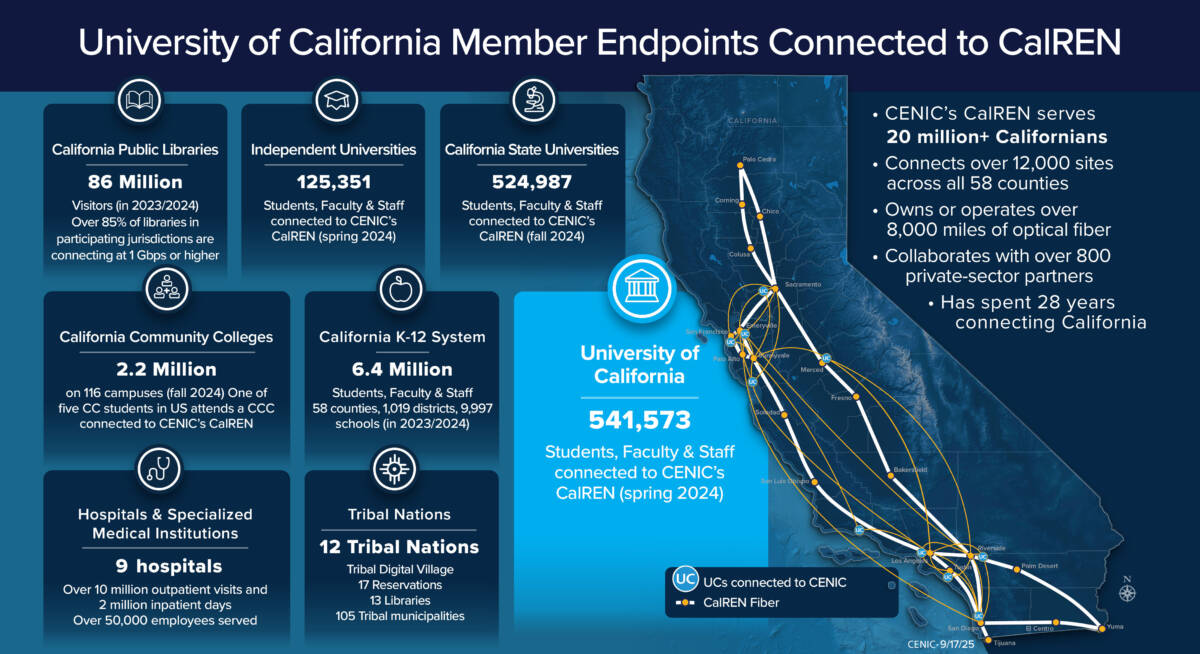
CENIC partners with national and international research and education, governmental, and commercial networks to expand access. It works to support broad public access to the educational, research, and cultural assets that position California for a prosperous future.
Together Since the Start
The University of California was instrumental in CENIC’s inception, and our deep partnership is even stronger today. Together, we solve some of the world’s most important problems and connect UC students, faculty, and staff.
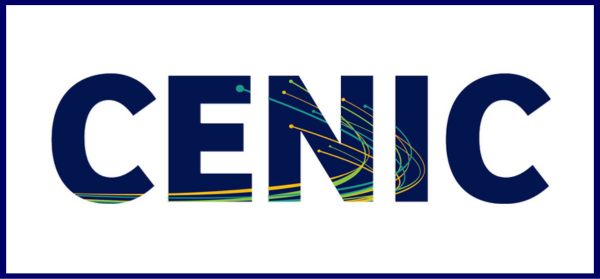
1996: CENIC is born!
Representatives from the University of California, California State University, Caltech, and the University of Southern California co-found CENIC as a nonprofit to support academic research and education needs.

1997: CENIC is funded
A consortium of CENIC institutions submitted a proposal to the National Science Foundation titled “High-Performance Connections Program” for CalREN-2—The California Research and Education Network.
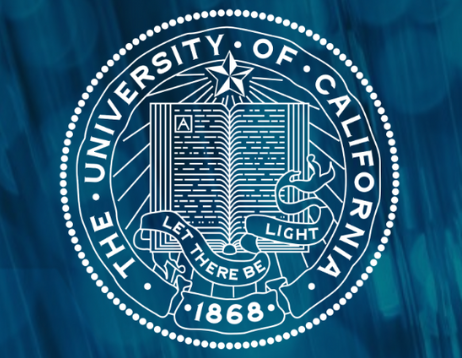
1997: UC becomes the first CENIC member
UC accepted membership as a Charter Associate, and the first UC Board Representatives were appointed.
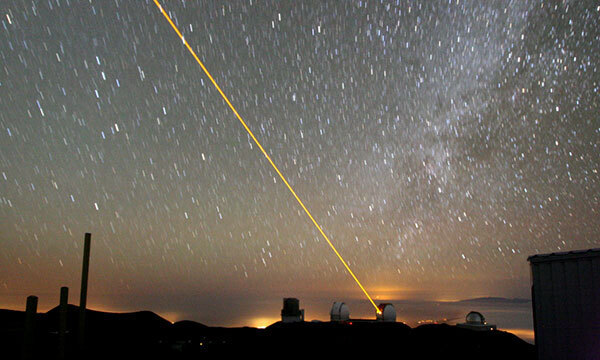
1999: All UC campuses connect to CalREN
UC campuses use CalREN services to advance telemedicine, monitor atmospheric and oceanic circulation, collect data from the Keck telescope in Hawaii, and transmit brain images remotely for clinical diagnosis, research, and teaching.
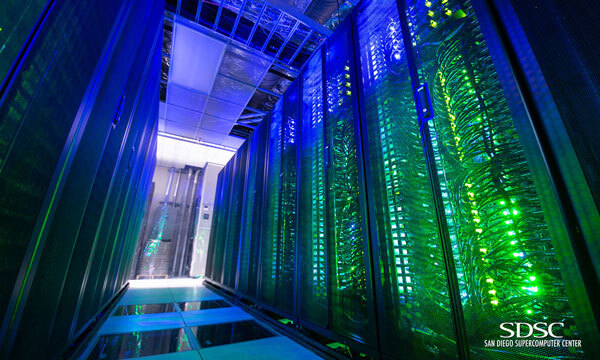
2000: CENIC expands its Peering and ISP programs
Negotiating contracts with the Information Sciences Institute of the University of Southern California, the San Diego Supercomputer Center, and PAIX (via Stanford) to provide two increased peering arrangements for users of CalREN.
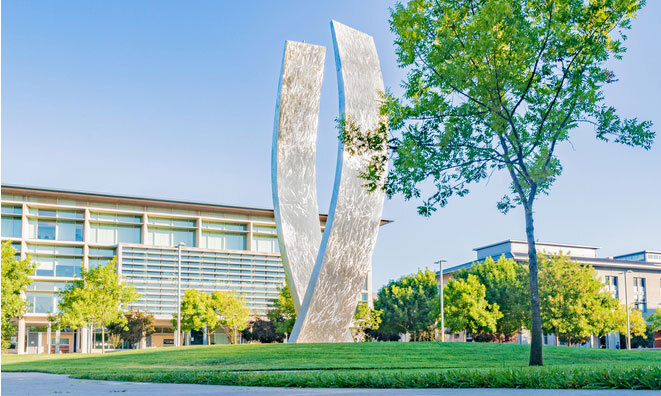
2004: UC Merced connects to CalREN
All 10 UC campuses and the Office of the President (UCOP) connect with 1 Gbps circuits.

2007: High performance network link established between UC Davis and UC San Diego
UC Davis and UC San Diego campuses connect to support ultra-high-performance and experimental network research.
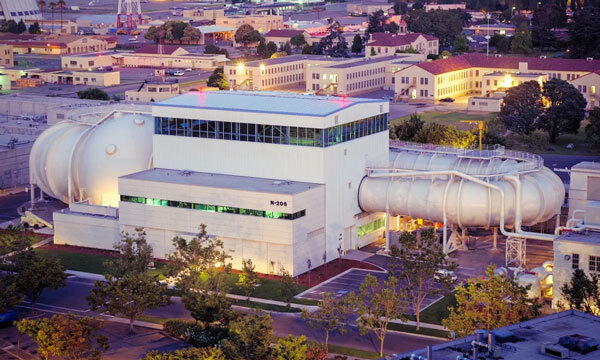
2009: Bandwidth between UC Santa Cruz and Silicon Valley Center increases 10x
Dark fiber connects UC Santa Cruz with direct, dedicated gigabit connection to their Silicon Valley Center located at the NASA Ames Research Center.

2011: UC Berkeley and UC Davis partner on Tele-Immersion for Physicians
The universities leverage CENIC’s advanced network capabilities to unite medical professionals and their data.
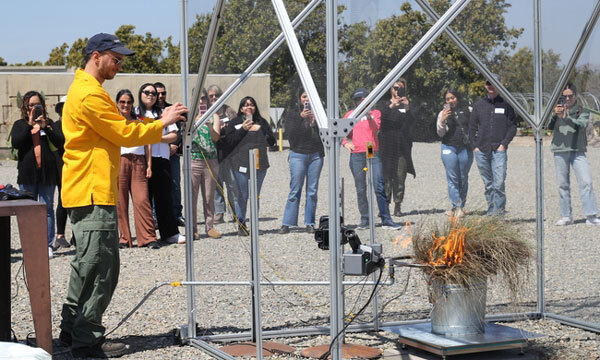
2016: CENIC connects UC Agriculture and Natural Resources (UC ANR) to CalREN
Over 700 academic researchers are supported statewide via nine research and extension centers and 57 extension offices.

2021: CENIC builds 400 Gbps circuits
UC San Diego and Caltech High Energy Physics established 400 Gbps connectivity through CalREN.

